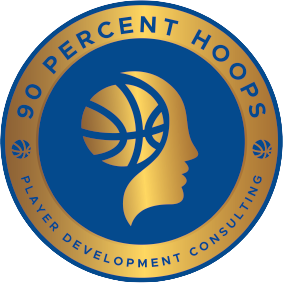Not having enough money is the most common reason people don’t do the things they truly want to. The cost of entry in itself prevents so many people from ever taking action on their dreams. Times have since changed. With the internet and social media, there is no price to get started. You can put out free content and immediately establish your credibility.
Getting started or getting yourself out there initially though, doesn’t mean you will have long-term success. In order to achieve your goals and have the life you want, you have to upgrade your life from where you currently are. It is much easier to achieve professional growth when you are committed to personal growth. What you may not know, is that you can upgrade your life for free.
If you are anything like me, you probably have a head full of ideas. I am constantly coming up with new ideas, sometimes a little weird, but I am of the mindset that all ideas are good ideas. Ideas are the spark that can create a raging fire. Ideas drive innovation and they drive the advancement of our society. All of the greatest inventions and advancements started with a simple idea. The world needs ideas and ideas can come from anywhere. So never tell yourself or let someone tell you that your idea is stupid or that your idea is totally unrealistic. Even if it is unrealistic, don’t let that stop you from dreaming or at least trying.
I am sure that Uber seemed like a stupid idea at first. Who would ride in a car with a stranger? That’s just asking for trouble. Or PayPal, who would ever send money on the internet? That’s just asking for my bank information to get stolen. These are just a couple of ideas that seemed a little too audacious, but they are now integrated seamlessly into our day to day lives. Everyone has ideas but few people have the audacity to take action on those ideas. An idea means nothing if there is no action taken. So what prevents people from taking action on their ideas?
One of the strongest inhibitors of action is not knowing where to start. You may have the best idea ever, but that idea is meaningless if you don’t know how to turn it into action. So many people disregard their ideas because they don’t know where to start. Or they have an idea, know how to implement it, but are scared of their idea failing. There will never be a perfect time to start. The best place you can start is by telling others about your idea. You may find that others can and want to help you with your idea.
In my opinion, the number one reason why people don’t take action on their ideas, is money. We assume we need money to start anything. That is the number one excuse that people make. They always say “well I would do that if I had some money.” Forgetting that not everyone who is a prominent figure or runs a big business, started out with a ton of money. It seems like most successful entrepreneurs start with little to no money. Phil Knight had nothing when he first started out. He was selling shoes out the back of a mini-van. Gary Vaynerchuk started his business in the conference room of another business!
If you truly believe in your idea, you will make it happen. Thinking you don’t have money or a good place to start are only excuses. If your idea can truly create change and benefit others, you won’t get caught up on these excuses. A great idea is more powerful than any lack of money or resources.
Not having money is the number one excuse that people make to not take action on their ideas. People use lack of money as a front, when in reality they don’t truly believe in their idea. It could also be they don’t want to work for it. There could also be fear that it might work out. The fear of success can be just as crippling as the fear of failure.
What is even more ridiculous is feeling like you cannot be a good person until you have money. Yes, when you have money you can buy things for people, take people to cool places, or create a lifestyle for you and someone else. But that is not being a good person. Money has nothing to do with character. Character cannot be purchased. You shouldn’t let money, or lack thereof, prevent you from reaching your highest potential and becoming someone you can be proud of.
Your net worth is not listed on your gravestone. When you die, nobody cares about how much money you made. The money you make during your lifetime can set up the next generation or generations to come. But if you were never a good person, you may not even have the opportunity to create a next generation. Your character, attitude, and impact will ultimately determine your legacy. Money can only last so long, but impact lasts forever. The best way you create impact is by what you do for others. By being a valuable resource to others and sharing your skills, knowledge, and passion with the world. This is how real legacy is created. This type of legacy will last longer and span more generations than money ever could.
In order to achieve your highest potential, you have to upgrade your life. You will never become the best version of yourself being the person you are right now. Enhancing your life is easier than you think. There is truly only one requirement, which is choice. You choose what you how you live your life and what you want to be. If you want to be a good, happy, ambitious person, you must choose that. This isn’t a choice you make once and it stays true for your entire life. It is a choice that must be made every single day.
I want to highlight a few choices that you can make. Choices that will allow you to upgrade your life without spending any money. These are all things that you can do to make yourself more valuable and ultimately the best version of yourself.
1. Work Ethic
Do not view work ethic as talent. Some people simply have more talent than others, there’s nothing you can do about that. No matter what industry or what field you enter, there will probably be someone more talented than you. You can make far more substantial progress increasing your work ethic than trying to increase your talent. We look at industry leaders as the most talented. Often times it is true. Industry leaders are those with immense talent. However, they did not become industry leaders solely based on talent. They also have a relentless work ethic and drive to improve. Talent is a very important quality to succeed but it doesn’t always translate to results.
Kevin Durant once said, “Hard work beats talent when talent fails to work hard.” Work ethic is the great equalizer. You can put yourself on the level of the extremely talented by working extremely hard. Look at a guy like Tim Tebow. Tebow was a talented player, but compared to all the other NFL quarterbacks, his talent was limited. Scouts and coaches tore up Tebow for his throwing mechanics and lack of fundamentals. He knew he wasn’t going to be able to make it purely off talent. Tebow relied on his relentless work ethic. A work ethic that had gotten him to the highest level of football. He knew he didn’t have the sheer talent to be one of the best quarterbacks in the NFL. But he had a work ethic that was unmatched. Despite all the experts and fans saying he would never be a successful quarterback. In 2011, Tebow was on the Denver Broncos and started out the season on the bench. The team struggled to start the season, which allowed Tebow to take over as starting QB. Tebow helped turn the Broncos season around, winning 6 games in a row and ultimately guiding his team to the playoffs. He then pulled off a game winning touchdown pass in their first playoff game, a huge upset win over the Steelers.
Tebow didn’t let the discouragement of not starting bother him. He continued to work hard and that allowed him to be ready when it was his time to step in. Tebow is to me, the definition of strong work ethic. He even said after a loss in college that you would never see another quarterback work harder. Tebow then lead his team to the national championship title.
If you work hard it is almost like the universe knows. It seems like the world rewards those who work extremely hard. It’s really not about fate though, it is really much simpler. If you work hard you will get better. The harder you work, the better you get. The more work you put in and the better you get, the more determined you will be. If you have determination and drive there is nothing that can stop you from getting what you deserve.
A strong work ethic also reveals your greatest priorities. When you work hard at something you know you really want it. You are not going to work hard for something you don’t want or care about. To find what you really want, try something you are passionate about and see how hard you work at it. Your work ethic around this passion will show just how passionate you truly are.
Those with talent seldom have a strong work ethic. They think that talent will carry them through and will be enough. Talented individuals also tend to believe their talent will automatically increase as time goes along. If you consistently work hard, you will always outlast the talented in the long run. A strong work ethic will always be respected. It can also lead to more self-respect. A huge aspect of self-respect is worthiness and feeling like you deserve good things to happen to you. Having a strong work ethic should make you feel like you deserve good things. Hard work always puts you in a more advantageous position to receive the things you want. We can never receive anything until we are ready. A strong work ethic will always keep you ready.
2. Skill Development
Learning a skill can require training and to receive training you have to pay for it. The internet and explosion of content has completely changed that. You can learn pretty much any skill these days just by watching Youtube or a simple Google search. If you want to learn how to code, or bake, or how to set up an online business, or how to kick a football, it’s only a few keystrokes away. The development of the internet has opened the door for us to learn valuable skills for free.
There are certain skills that require certifications and qualifications, to get those you will likely have to pay. Certain hard skills require payment, but almost any soft skill is free. Skills such as empathy, confidence, problem solving, communication skills, and emotional intelligence. These are not things that are taught to you in school but they may be more valuable than anything you ever learned in school. These skills are extremely valuable, either for becoming a leader or a great member of an organization. In order to make yourself more valuable or improve your interactions with others, you must possess these skills. Team leaders and hiring managers specifically look for signs of these soft skills in interviews.
Every resume employers come across is impressive. They are not looking for the best resume, they are looking for the best individual. Being proficient in the soft skills allows you to stand out as an individual. You become valuable and eye catching when you possess skills and qualities that few others have. Hiring managers and CEO’s aren’t as concerned about the exact skills that you can bring to the table. They are more looking for character and how you would fit into their culture. You will learn the technical side of any job, companies know they can teach that. It is much harder for them to teach you how to be a good person and high character individual. The better person you are the more valuable you become.
Here are a few examples of highly valuable soft skills and how you can develop them. Improving your soft skills is essential if you want to upgrade your life for free.
Empathy:
You can become more empathetic by being able to relate with others. In order to do that you have to be able to look outside yourself. Outside your situation, circumstances, and feelings. When you learn to understand others and the things they do, you actually learn more about yourself as well. It is important to focus on others sometimes to prevent yourself from becoming too self-absorbed. Self-absorption forces you to overthink and constantly evaluate your problems. You can’t get the most out of yourself this way. You will not be able to focus on your work or the things that are actually most important. Focusing on others allows you get out of your own head, which reduces the complexity of your problems. You can also focus more on your work and the truly important things in your life.
You don’t have to involve yourself in everything you do. It is important to be able to look at others in an objective way. A huge aspect of developing empathy is not taking slights or even compliments personally. Not everyone knows everything about you, so they don’t have the complete picture of you. Empathy is about relating and identifying with others, but not adopting or internalizing everything they say.
The most important aspect of empathy is realizing that you are not the only person that matters. Everyone else in the world has problems, anxieties, or feels excitement just like you do. The connection that you build with someone is much stronger when you try to understand their perspective. Learn how to relate with others by asking good questions, finding points of similarity, and exploring points of difference. This allows you to develop a broader picture of others and those you interact with. Having a broader perspective allows you to understand others more and place the focus on them when needed.
Confidence:
I could probably write a whole book about confidence and how you gain it but I will give you the most concise version. You gain confidence through results. It is really quite simple. If you win at something you have more confidence for the next time. When you win again, your confidence increases even more. The only way to get results is by taking action. We are typically unconfident only when we are dealing with things we have failed at or never done before. If you haven’t done something before, you obviously haven’t taken action. The more action you take the more you experience and the more you learn. If you never take action though, you will never gain any experiences.
We gain confidence through the experiences we have. If they were good, we have confidence to do it again. If it was a bad experience, we learn lessons that can give us confidence for the next time. You don’t even give yourself the chance to be confident without action.
The fiercest enemy of confidence is the limitations we place on ourselves. We place limiting beliefs on ourselves and that makes us think we can’t do something. Obviously insinuating that we don’t have any confidence. We always fear the unfamiliar, but once we take action, the fears seem to subside. Now going forward, you have confidence because you broke the initial barrier you placed on yourself. Confidence comes from doing things you think you might fail at. We can remove these limiting beliefs by taking action on all the things we could possibly fail at.
Do this today, identify one thing in your life that you could possibly fail at. You could probably find a hundred, but start with one. Take action on that thing today and put those limiting beliefs to the test.
There will always be times where you have doubts about yourself. If you have proper self-awareness though, you shouldn’t have any doubts about yourself. With self-awareness comes understanding of your limits, knowing what you can and cannot do. Doubt only fills our minds and bodies with negative emotions. We can’t seem to look past these doubts. Doubt is a much stronger emotion than confidence. Doubt consumes every inch of our minds. It tells us that we can’t before we even start.
Experiencing doubt is like having the most negative and annoying backseat driver. When you want to try something new or expand yourself, that backseat driver that is doubt, immediately shuts us down. Doubt weighs much heavier on us than confidence does. But confidence is the great killer of doubt. Doubt stands no chance to great confidence. You have to eliminate doubt and the only way you can do that is by trying. Even if you fail, you can dwell on the fact that you pushed through doubt and took action. That in itself should give you confidence.
Problem solving:
There are a million different types of problem solvers. Some people are able to identify a problem and immediately solve it. Others ignore the problems and hope they go away eventually. There are also problem solvers who are able to solve problems but not in the most efficient and effective manner. Your ability to be an effective problem solver depends on your mindset. Problems are inevitable, you cannot avoid them no matter how hard you try. You should never make a problem bigger than what it is. You don’t want to turn one problem into two, or ten problems.
This can be done by closely evaluating the problem and becoming clear on what the actual problem is. You cannot provide the correct remedy without an accurate diagnosis. To effectively problem solve, you have to look at how your solution could cause problems in other areas. Solving each problem one at a time can be effective in doing this. You have to look at how the problem is affecting others and make sure that the solution works for all who are affected by it. Make sure that everyone is in agreement about the solution. There will certainly be times where not everyone agrees. Understand why they disagree and ask for their input on solving the problem. Make sure to at least factor that in.
The most useful tool in problem solving is creativity. Albert Einstein had a quote that said, “We cannot solve our problems with the same thinking we used when we created them.” We have to be able to think creatively, outside the box, in order to effectively problem solve. You cannot use the same level of thinking to solve a problem that you used when you created the problem. Otherwise, there would be no problem in the first place. Creative problem solving requires a fresh perspective. That is why so many look to others to help them with their problems. Another persons input brings new evaluation possibilities. It is easy to create a problem, but it’s much harder to solve one. Some solutions appear to be obvious, but the obvious choice is not usually the best solution.
Your job as a problem solver is to not just think of a solution, but the best solution. Using a systematic process can be very helpful in solving problems. The only issue is that each problem you face is unique in its own way. Some problems are more complex than others and require more creative thought. You can’t have a solution to every problem. You will come across unfamiliar problems in which you have no idea what the solution should be. I am sure you have already come across this in the past. You came across a problem and didn’t know how to solve it. If you did solve it, you obviously used creativity.
Creative problem solving is about thinking about as many solutions as possible. It is looking beyond what is clear and obvious. Even if you think you have the perfect solution, you should still continue to brainstorm. The more solutions you can think of, the more you increase the likelihood of solving the problem.
Communication:
Your ability to effectively communicate can set you apart from so many other people. So many problems and damaged relationships are the effects of poor communication. When you are a great communicator, you also become a great relationship manager.
There are little adjustments that you can make immediately and become a more effective communicator. Like smiling. Smiling shows warmth and friendliness. It allows other people to feel your joy. Have you ever noticed that when you smile at someone they smile back? You don’t want to smile too much, that’s creepy. Smiling often radiates a presence that others want to be around. Another immediate adjustment you can make is always using the name of person you are speaking with in conversation. Other people love it when you use their name in conversation. It makes them feel like they are a priority to you and it instantly builds rapport. Most people only hear their names from their parents, siblings, or boss/teacher.
The ability to provide feedback is also a key aspect of being a great communicator. You need to be honest with others and tell them what they need to hear, not what they want to hear. It may be unpleasant at first but the other person will appreciate it much more in the long run. When you are providing feedback to others, you must be objective. You must remove whatever personal feelings you have for someone when evaluating their work. All good feedback should be designed to help the other person grow in their work.
So many leaders tend to give unilateral feedback. It is either all good or all negative. Being on one side of the spectrum can be very damaging to a relationship and prevents the other person with direction on how to improve their work. Too much positive will make others feel they can do no wrong and no matter what they do it will be good. This creates entitlement and comfort. You should make others feel comfortable of course, but too much comfort means not enough accountability. Great people can do less than great work. Don’t misguide someone because you simply want to preserve their feelings.
If you are in a position where you are holding others accountable, communication is vital. Always show appreciation first. It is much easier to find the negatives than it is the positive. Take time to appreciate the other person. Especially when you are giving constructive criticism. You want to make others feel valued and recognized. Do that by showing appreciation before giving them constructive criticism.
The easiest way to become a better communicator is by being a better listener. You actually become more interesting by being interested. Ask thought provoking questions and encourage others to talk about themselves. Everyone likes to talk about themselves. All people want to be heard and if you show to be an active listener, people will want to be around you. Asking questions and encouraging others to talk about themselves strengthens rapport. When you build rapport with another person, it makes them feel like they are important. People love when someone else is genuinely interested in them and wants to hear what they have to say. A strong rapport breeds trust. Others will feel comfortable talking to you if they know you are actually listening to what they’re saying.
Listening more allows you to understand others and how they view themselves and the work they do. Listening allows you widen your perspective and allows you to identify with others more easily. Being a great listener satisfies the needs of others (to be heard). When you can satisfy the needs of others you become a much more effective individual. So if you want to be trusted, learn how to listen.
Emotional Intelligence:
The easiest and best way to become more emotionally intelligent is first understanding your own emotions. You cannot understand the emotions of others until you understand your own. Emotional Intelligence is gained through understanding the root causes of your emotions. Why you feel certain emotions in certain situations. You have to get the root of what makes you feel sad, angry, happy, joyful, excited, frustrated, anxious, inspired, bored, interested. Also, why you experience those emotions.
Understand that many of your negative emotions are rooted either in your insecurities or events/experiences from your childhood. The best way to overcome insecurities or early traumatic experiences is by first accepting them. You cannot lie to yourself, you must face the real reason. There are reasons behind all of your insecurities. Accepting your insecurities allows you to see the real reasons behind them. Understanding the reasons behind your insecurities allows you to turn a weakness to a strength. Often times, we let lack of awareness worsen our insecurities. Acceptance allows you to gain power over your insecurities.You can turn any negative emotion into a positive emotion when you understand the trigger behind those negative emotions.
Our thoughts produce physical reactions in our body. When we think about someone we hate, our bodies tighten up. When we think about something sad, we tear up. When we think about something funny, we laugh. When we are impressed by something, we clap our hands. The negative emotions that you feel inside your body come from the thoughts in your mind. Understanding the roots of your emotions allows you to change your thought patterns and put your mind in a more peaceful and happy place. This is an essential step in gaining emotional intelligence.
Once you have a solid understanding of your emotions and the causes of them, you can more easily handle other people’s wide ranges of emotion. When people act negative or hostile towards you, emotional intelligence keeps you from taking it personally. Through emotional intelligence you can recognize that those negative feelings projected by others are coming from a place of insecurity or neglect. You can’t be mad at them or take it as a slight. The only thing you can do is feel bad for them or use your emotional intelligence to help them better understand their emotions.
Understand that during times of stress people will act out of character. Stress can reveal certain emotions in people that you normally wouldn’t see. Be cautious of this, but don’t always assume that when someone lashes out at you while under stress that it’s how they feel about you. They probably just needed at outlet for their emotions, and you were unfortunately their most convenient outlet.
When we become consumed by certain emotions, they can also consume our minds. Never let anything else have control over your mind. Emotional intelligence allows you to recognize those trigger points that inevitably lead to emotional outbursts. The only way to avoid these outbursts is by controlling your thoughts when those emotional triggers occur. The emotional version of you wants to win over, but don’t let it. Think about something that brings you peace, or think about how you want to remain calm. These soothing thoughts subdue the emotional version of you. If you can master this, you can master your mind. You can also use this to better understand others and have more positive interactions with them. When you become more aware around your emotions, you can gain complete control over them.
3. Attitude and outlook
Having a good attitude is essential to getting the most out of life. A good attitude allows you to learn from negative experiences. A poor attitude will let a negative experience turn you into a negative person. Your attitude is the only thing that allows you to identify what is a positive or negative experience. A bad experience may be a great experience for someone else. A good experience may be a bad experience for someone else. If you shift your attitude towards what you can learn or improve on with each experience, they will all be positive.
You cannot dwell on what you lost or missed out on. This only creates regret. Regret is one of the most damaging emotions that you can live with. It prevents you from being appreciative and seeing the world in a positive light. It makes you feel like the world is against you and you are doomed for failure. A good attitude always is focused on what you gained.
For example, if you get fired at a job. For many people this can seem like a real failure. It makes you think that there is something wrong with you or you are not good enough. You become resentful of the company you worked for and the people you worked with. The better way of handling this is by focusing on all that you learned while on the job. Use that experience to go after something bigger and better. Instead of feeling sorry for yourself or anger for the people that fired you, use those emotions to elevate yourself. Use these feelings as motivation to do something bigger and better. That will certainly make them feel bad for firing you. Use your negative experiences or failures as a launching pad to advance to higher levels in your life.
Any negative can be turned to a positive but only if you have the right attitude. Life really is all about what you make it. Your attitude determines the direction and ultimate outcome of your life. If you tell yourself how terrible something is, it will be terrible. If you have an attitude of making the most out of everything you do, then you will always get the most. Our outer world is just a projection of our inner world. When you change your attitude you also change your actions. Ultimately, the quality of our lives is determined by our actions. If we do things to hurt ourselves or set us back, we will be hurt and set back. If you have a positive attitude, you will take action on more positive things. Which in turn, makes your life more positive.
You must adopt an attitude of optimism. This allows you to be excited about your future and prevents you from getting bogged down by everyday challenges. When you have an attitude of optimism you can be more gracious about your past. You lose those feelings of resentment and frustration about certain events of your past. You stop letting them dictate who you are in the present and future. An optimistic attitude doesn’t care about the past, it is only focused on growth. When you focus on growth you are only worried about improvement and getting better. So you don’t resent past experiences, you just learn how to grow from them. Optimism allows you to be excited for challenges instead of fearing them.
With optimism, the fear of failure is non-existent. Success or failure don’t matter because you will learn more about yourself and use that challenge as a way to grow. When you are optimistic, there is no such thing as failure. Only lessons learned. With optimism you are unafraid to accept challenges or try something new. Everything you do is a way to learn more about yourself and gain more knowledge.
William James had a great quote about attitude, he said “The greatest discovery of my generation is the fact that human beings can alter their lives by altering their attitudes of mind.” I have already showed how this can be done, since our attitude is directly related to our actions. I have never met a person with a great attitude who was a complete failure in life. That is because it simply impossible to fail if you have a good attitude. Even if you do not get your desired results, you will never consider yourself a failure. You will only look at what you learned and how you can grow from it.
A good attitude produces so many positive unintended effects. A good attitude allows you to be more creative. Optimism allows you to think about what could be or what should be. A good attitude keeps you from dwelling on something negative. Instead it forces you think about how it can be positive. Thinking about positive change and ‘what can be’ unleashes your creative powers.
A good attitude also helps you develop peace of mind. It allows you to be fully present and enjoy each experience as it occurs. You aren’t dwelling in the past or worrying about the future. You are simply enjoying your moments alive and on Earth. Stress comes from being concerned about things out of your control. Both the past and the future are out of our control. Why make your life more challenging and difficult by being concerned with things outside your control? A good attitude won’t allow you to.
Another area of your life that attitude benefits is your relationships with others. A good attitude allows you to be more understanding and patient with others. You don’t become reactive to some of the petty things other people can do. You see that is simply part of who they are and you can’t change them. In a relationship, you have to learn how to accommodate for the needs of others. A good attitude helps you become more adaptable. You can go with the flow and recognize that being a good sport and doing what others want to do is great for the relationship.
There are certain relationships that only work when you are doing an activity or because of someone else. For instance, you only hang out with Albert when you play poker on Wednesday’s. Or you only hang out with Morton when you go bowling the first Saturday of every month. Or you only hang out with Tina because your kids play on the same T-ball team. But your friend Perry on the other hand, you will hang out with him whenever you get the chance. You guys will just sit on the couch and talk when you hang out. You don’t need an activity to uphold the friendship. Guys like Perry are your true friends, your real ride or dies. Being adaptable in a relationship shows the other person you care about them as an individual. Not just the activity that you guys do together. The activities are meant to strengthen the relationship, not uphold it.
With a good attitude we can be in charge of our fate. We get to determine the life we live. You can find so much joy throughout each day with a positive attitude. Our attitude determines how we see the world and how we assess ourselves. Our attitude is like the steering wheel. We determine which way we go.
Conclusion:
All of these skills I have highlighted are skills you can add for free. These skills will not only help you in your professional life, but your personal life as well. These skills will improve your character and make you more valuable to a company, to other people, and most importantly, yourself. These are skills that will upgrade your entire life. You can use these skills to make you money, or find love, or find happiness, or simply improve an already existing relationships. When it is all said and done, how much money you made will not matter. What will matter is what type of person you were. You should want to live a quality life, one full of meaning and purpose. One that positively impacted others around you. It costs zero dollars to work hard, zero dollars to become more skilled, and zero dollars to have a good attitude. Now that’s how you upgrade your life for free.
The Rolling J / Jonathan McClure
Previous Article – https://therollingj.net/never-let-perception-become-your-reality/
LinkedIn Profile – https://www.linkedin.com/in/jonathan-mcclure-0594aa17b/














2 thoughts on “3 WAYS TO UPGRADE YOUR LIFE FOR FREE”